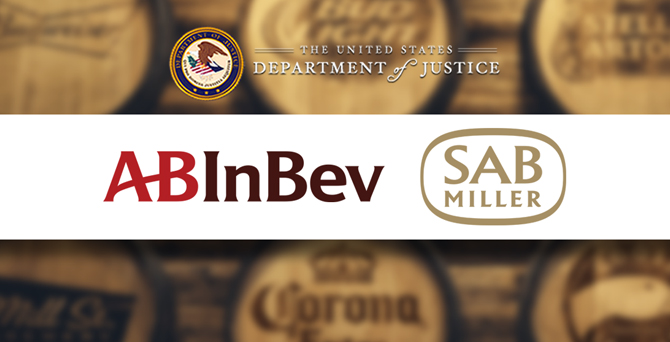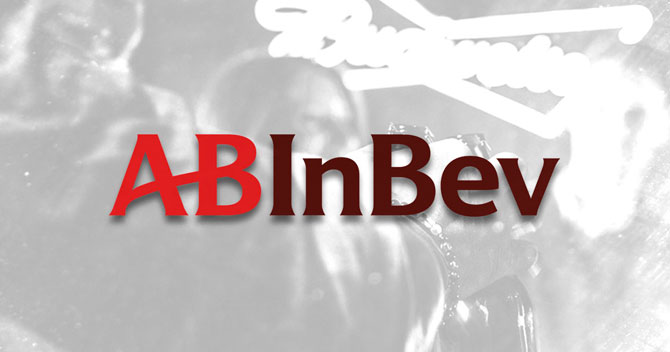
A federal judge in Washington, D.C., has signed a “Modified Final Judgment” that officially clears Anheuser-Busch InBev’s $100 billion purchase of rival SABMiller more than two years after the Department of Justice initially green-lit the acquisition.
U.S. District Judge Emmet G. Sullivan on Monday ruled that A-B InBev complied with requirements of the Antitrust Procedures and Penalties Act, and he approved a number of new conditions that he said are “in the public interest.”
The four new provisions to the consent decree are “designed to improve the Proposed Final Judgment’s enforceability,” according to a DOJ order issued Monday in conjunction with the Final Judgment.
In addition to a previously agreed upon stipulation that required A-B InBev to divest itself of the MillerCoors business in the U.S., and conditions that limit the company’s power over independent beer wholesalers, the DOJ has included new language that will make it easier for the government to pursue legal action against the global beer giant if the company is believed to be in violation of the consent decree.
Specifically, the DOJ now reserves the right to “establish a violation of the decree” by “a preponderance of evidence,” instead of “clear and convincing evidence,” which is the standard that U.S. antitrust agencies have been held to in the past, according to Andre Barlow, an antitrust lawyer with Doyle Barlow & Mazard, and a former attorney of the Department of Justice’s Antitrust Division.
A-B has also agreed to “waive any argument that a different standard of proof should apply,” and must reimburse the DOJ for “any attorneys’ fees, experts’ fees, and costs incurred in connection with any effort to enforce this Final Judgment.”
The DOJ may also request a one-time extension of the Final Judgment if a court determines that A-B InBev has violated the decree.
“The DOJ and ABI negotiated some modifications to the consent decree for the better,” Barlow wrote to Brewbound via email.
Two of the four new provisions benefited A-B InBev, however. The Final Judgment will expire 10 years from the date the DOJ filed its initial antitrust complaint in response to the proposed acquisition (July 20, 2016), instead of when the final decree was signed (October 22, 2018).
The Final Judgment can also be terminated after five years if the DOJ determines that it is no longer “necessary or in the public interest.”
“I believe that each provision allows for meaningful and effective enforcement of the behavioral decree and should encourage ABI to comply with it,” Barlow told Brewbound.
A large portion of the language included in the Final Judgment pertains to A-B’s involvement in the so-called “middle tier” of the beer industry. According to the decree, A-B InBev is not allowed to:
- Purchase a beer wholesaler if the acquisition would result in more than 10 percent of the global beer giant’s U.S. volume being sold via wholly-owned distribution companies.
- Use the required divestitures of the Molson Coors brands as a “basis for modifying, renegotiating or terminating any contract with a distributor.”
- Provide rewards to independent A-B beer distributors or penalize independent beer distributors for selling or marketing beers made by other beer companies.
- Restrict an independent beer distributor from transferring control or ownership to another distributor because of the acquiring distributor’s relationship with other third party brands.
- Require an independent wholesaler to report revenues, profits, margins, costs, sales volumes or other financial information associated with the purchase, sale or distribution of any other beer companies’ products.
- Retaliate against any independent wholesaler that “raises or alleges, or otherwise brings to the attention of the United States or the Monitoring Trustee an actual, potential, or perceived violation.”
“This comprehensive review by the Department of Justice, Congress and the court affirms that independent beer distribution is essential to competition,” National Beer Wholesalers Association (NBWA) CEO Craig Purser said via a prepared statement. “The court’s order, as well as the appointment of an independent monitor to ensure it is followed, recognize and support the important role that America’s beer distributors play in a strong, vibrant and orderly beer marketplace which benefits brewers, retailers, consumers and the public.”

Additionally, A-B InBev cannot complete any acquisitions of a brewery, distributor, or importer that “derives more than $7.5 million in annual gross revenue from beer sold,” without providing at least 30 days notice to the DOJ.
Nevertheless, now that the consent decree is officially signed, sources with knowledge of A-B InBev’s business who spoke to Brewbound believe the company could once again become a more active dealmaker for both breweries and distributors.
Since the DOJ filed its complaint in mid-2016, A-B has executed three U.S. transactions, buying Wicked Weed Brewing, SpikedSeltzer and the remaining stake in Virtue Cider that it didn’t already own.
The more than two-year review process included a mandatory 60-day public comment period that drew remarks from Ninkasi Brewing, Yuengling, the NBWA, and the Brewers Association, among others.
Additional details about the Final Judgement can be found on the NBWA’s Alcohol Law Review website.
A timeline of events can also be found on the DOJ website.